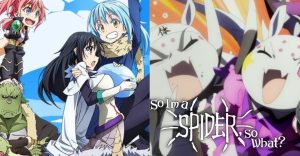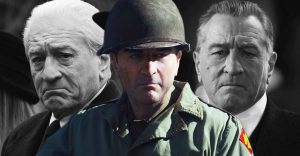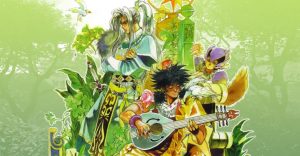Demon’s Souls: What Boletaria Was Like Before The Colorless Fog

The backstory of Demon’s Souls, the FromSoftware game that kickstarted the “Soulslike” sub-genre of RPGs, is a classic tale of human hubris: as cited in the prologue cinematic for the Demon’s Souls Remake, “King Allant the Twelth, by channeling the power of souls, brought unprecedented prosperity to his northern kingdom of Boletaria. That is, until the colorless deep fog swept across the land.” Players of Demon’s Souls witness the ruinous state of fallen Boletaria first hand – its proud castle walls crumbled, its halls overrun with soul-devouring demons and their mindless slaves. But what was Boletaria like before its fall? What heights of prosperity did King Allant achieve with the power of the Soul Arts, and what made him decide to end it all by awakening the soul-devouring Old One? Players can glimpse the answers to these questions by talking to Boletarian NPCs in the Demon’s Souls world… but the truth of Boletaria’s past can only be found in the imaginations of players, just as game designer Hidetaka Miyazaki intended.
Demon’s Souls (and its spiritual successor Dark Souls) are very fixated on the concept of souls, unsurprisingly. Mechanically, souls in these games act as both experience points and a form of currency. The souls of enemies will transfer to players upon defeat, and various merchants found in the game worlds will trade souls in exchange for new weapons, supplies, and disciplines of magic. The colorful souls of enemy bosses – demons, gods, dragons, and fallen heroes – can even be transmuted into powerful weapons or magical arts in the right hands. Rarely, if ever, do the characters of Demon’s Souls or Dark Souls seem to question the ethics of bartering souls, the source of humanity’s life and sense of self.
In truth, this cavalier attitude towards the commodification of souls seems to pre-date the Deep Fog and the Scourge of Demons witnessed in the game plot of Demon’s Souls. Indeed, the closer a player looks at the world design of locations like the Boletarian Palace and the attitudes of lower-class NPCs like the Dredgling Merchant, the more it appears that Boletaria’s “Golden Age,” like many golden ages in history, was built through the exploitation of slaves and victims who had their souls extracted to empower great works of magic.
Demon’s Souls: Boletaria At Its Peak

During a conversation in the Nexus of Demon Souls, Ostrava of Boletaria, a skittish wandering knight, has this to say about his homeland:
Before the blight, Boletaria was a grand kingdom. The king, his knights and his subjects were modest and plain, but also steadfast and compassionate. I have spent much time in my studies in the cultured countries of the south, yet no country holds my heart as does Boletaria.But look at what has become of us now! I refuse to believe that this is what Father wished for our great land…
Later on in the game, Ostrava’s true identity is revealed: he is Ariona, son of King Allant, a scared yet oddly courageous youth who idealizes both the homeland and father he spent much of his life away from. Furthermore, he is a particularly sheltered member of Boletaria’s nobility, reared with a mindset that would blind him to the lives and perspectives of Boletaria’s more common subjects.
For an alternate perspective, players of Demon’s Souls can talk to the Dredgling Merchant found in the Boletarian Palace, a scavenger who sneers at Ostrava as a “pampered son.” When addressed, he has this to say:
Brave knight or lowly fodder, the Demons snatched their souls regardless of station, plummeting them all into madness. And those who dare cling to their humanity were hunted down. It is the end of Great Boletaria as we know it. But hell, at least the Demons don’t send us to our deaths in battle!
The Dregling’s cynical observation hints at a dark side to the “Great Kingdom” of Boletaria seen in Demon’s Souls, one that existed even before King Allant kindled a demonic apocalypse. The poorly equipped “Dregling” enemies fought throughout the game are an entire underclass of slaves, given broken equipment and used as expendable meat shields for the more fortunate members of Boletaria’s society. With a mindset of “sacrificing the poor for the prosperity of the rich,” is it any wonder King Allant and his fellow aristocrats embraced the idea of consuming the souls of their subjects for power?
Demon’s Souls: Boletaria’s Magical Artifice & Demon Servitors

There are multiple points in the plot of Demon’s Souls where the player encounters artificial Demons, amalgamations of soul energy created by powerful sorcerers or magicians – take the Old Monk and his Man Eaters, for instance, or King Allant himself and his sword-wielding “Demonic” Reflection. Indeed, it may be that the Old One, the primordial being behind the spread of the Deep Fog, can’t actually create demons on its own – only empower those who wish to create or become Demons themselves.
The Dragons seen throughout the Boletarian Palace area of Demon’s Souls are described by NPCs as King Allant’s “pets,” and certain Demons like the “Vanguard” boss seen at the start of the game are adorned with chains, suggesting they were restrained or controlled by men in the past. This suggests that before the Deep Fog spread, the magicians of Boletaria used the Soul Arts to create Demons, powerful creatures they used as beasts of burden, servant and as steads of war.
Instead of a technological Industrial Revolution, Boletaria’s fabled prosperity may well have come from a magical Demonic Revolution, with Demonic laborers raising up the Boletarian capital’s massive walls and looming towers, and artificers using Demon Souls to create artifacts of power (as Blacksmith Ed can do in-game with the Flamelurker’s Soul). Then the Old One awoke, seizing control of the Demons and directing them to devour the souls of all humans. Or perhaps the master of these Demons never changed.
Demon’s Souls: King Allant’s Despair

In the backstory of Demon’s Souls, King Allant is portrayed as a great monarch on the level of King Arthur, even down to the point of having his very own “Round Table” of knights – the royal Twin Fangs Vallarfax and Biorr, Alfred, Knight Of The Tower, Metas, Knight of the Lance, and Long Bow Oolan. Biorr, one of the sole surviving knights, has nothing but kind words to say about Allant, describing him as a magnanimous ruler – “stolid, spirited, caring of his subjects.” And yet, by the time the player’s character passes through the Deep Fog into Boletaria, King Allant’s goal is to feed all the souls of humanity to the Old One and destroy the world. How did he go from a virtuous monarch to an oblivion-seeking villain?
In his motive-revealing rant to the player at the climax of Demon’s Souls, the mutated, pathetic Allant bewails the “the pain and suffering that fills this world,” viewing the Old One’s consumption of every soul as an end to suffering, asserting that “no one wishes to go on.” Thematically, Allant comes across as a metaphor for depression and the struggle against it, his view of death as escape from torment contrasted with the persistence of the player character, who has endured countless deaths and setbacks in their fight to reach Allant.
Among the many secrets of Demon’s Souls, the most mysterious may be the reason why King Allant fell from wise king to homicidal crusader against humanity. Perhaps, after bringing his kingdom of Boletaria to the height of prosperity, Allant felt unsatisfied and without purpose. Or maybe he had a moment of horrific clarity, realizing his utopian kingdom was built on the suffering of oppressed under-classes and soul-drained victims. In either case, rather than fighting to alleviate the suffering he saw in the world of Demon’s Souls, Allant chose to try and wipe it all out instead.
About The Author

















